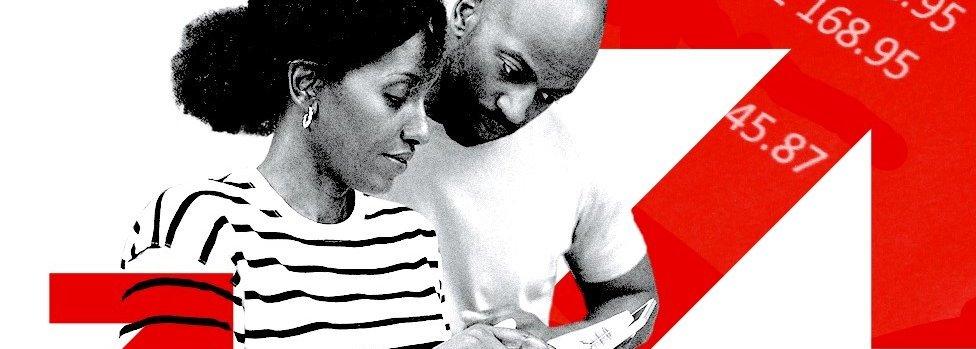Overdraft changes saved borrowers £1bn, says watchdog
- Published

An overhaul of the overdraft system in the UK has collectively saved borrowers £1bn, the City regulator says, but some people still miss out on support.
Banks were told to set their own single overdraft rate by the Financial Conduct Authority (FCA) two years ago to simplify the options for borrowers.
Costs rose for some, but fell for those who previously went overdrawn without permission.
The less complex system made fees easier to compare, the FCA said.
Overdrafts are intended for short-term or emergency use, the regulator said, with other types of credit more suitable for long-term borrowing.
The savings came from reforms in 2019 and 2020 which tackled overdraft pricing, and provided support for customers who used overdrafts repeatedly. The policy was designed to help the 14 million people who suffered most because they slipped into unarranged overdrafts, without getting authorisation in advance from the bank, and paid much higher charges.
The FCA's evaluation of its own new rules found each customer who had an arranged overdraft or access to an unarranged overdraft saved, on average, £17.40 in charges in 2021 due to the new pricing rules.
"The action we took to simplify overdraft charges and to tackle high unarranged overdraft fees has saved people across the UK almost £1 billion in total," said Sheldon Mills, from the FCA.
"Such savings are vital as people manage cost-of-living pressures."

Tackling It Together: How to deal with looming debt

Talk to someone. You are not alone and there is help available. A trained debt adviser can talk you through the options. Here are some organisations to get in touch with.
Take control. Citizens Advice suggest you work out how much you owe, who to, which debts are the most urgent and how much you need to pay each month.
Ask for a payment plan. Energy suppliers, for example, must give you a chance to clear your debt before taking any action to recover the money
Check you're getting the right money. Use the independent MoneyHelper website, external or benefits calculators run by Policy in Practice, external and charities Entitledto, external and Turn2us, external
Ask for breathing space. If you're receiving debt advice in England and Wales you can apply for a break to shield you from further interest and charges for up to 60 days., external
Tackling It Together: More tips to help you manage debt

The measures were questioned by some borrowers and campaigners at the time. Some of the 19 million people who used arranged overdrafts were unhappy at the rise in their rates.
But the FCA decided charges were too high and too confusing so it banned treating people with unarranged overdrafts differently and it banned daily or monthly charges. Lenders had made £2.4bn in revenue from overdrafts in 2017 - around a third of which was from unarranged overdraft fees and charges - before the changes were made.
Although money has been saved, and the use of overdrafts fell sharply during the pandemic, they remain a relatively expensive borrowing option with annual interest rates of up to about 40%.
The FCA review also found that gaps were found in how some lenders monitor and review the effectiveness of their policies and procedures for customers who repeatedly use their overdraft.
That meant some people were missing out on the support they should be receiving because lenders failed to spot their potential difficulties, the FCA said.
- Published27 June 2024

- Published3 February 2020

- Published2 March 2020

- Published7 February 2023
